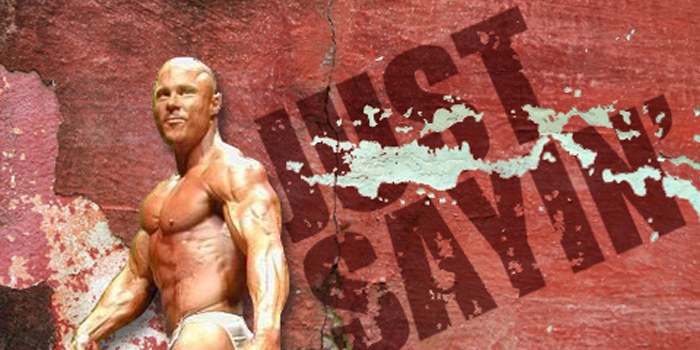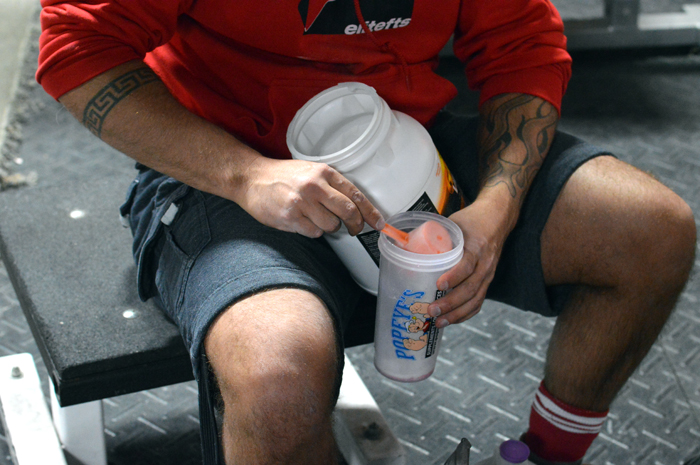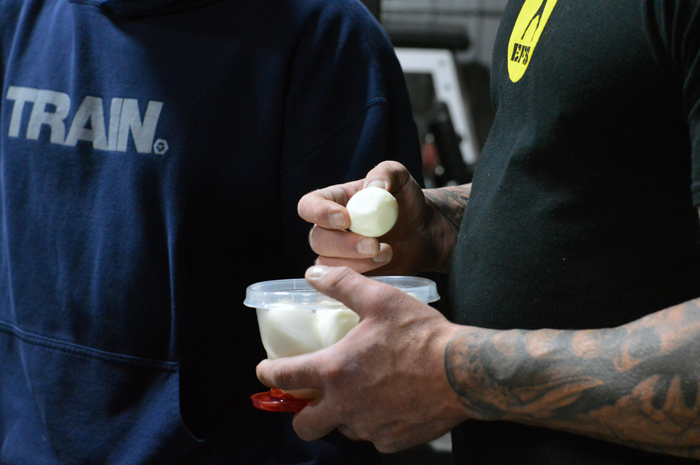
Look, I don’t want to sound like a dick but sometimes this isn’t anywhere near as hard or complicated as some people make it out to be. Everyone’s situation is different and I get that some people want to make the process of growing muscle or getting lean as efficient as possible. However, if you are one of those people that considers yourself clueless and you have sifted through so much information that you are even more confused than before you started, I am going to give you a crash course in logic and what to do when your training plan or nutrition plan isn’t going the way you think it should.
Are you paying attention?
Do what you aren’t doing now.
You are welcome.
Now, if submitting an article of only 129 words would be acceptable, I could end right here. Bitch is, I can’t. So I figure I might as well elaborate. Plus, for those that like to complicate things, there is no way they are going to accept something as simple as, “do what you aren't doing now.”
Most of us tend to get stuck in a rut of what we are told works or what we have read works, and we completely disregard any real measure of whether something is truly working or not. Even when we figure out that we don’t think something is working, we tend to keep going in the hopes that it is working but it just hasn’t yet shown the obvious signs that it is. That probably sounds kind of funny when you read it but…it isn’t so funny when you are one of the people that actually has done this.
Instead, it should only take two to four weeks to truly gauge whether anything is going on or not. This applies to dieting or training. If you are using gauges like the scale, calipers, tape measurements, strength progression, etc., you should be able to assess with some degree of accuracy as to whether something is working or not. When it is not, continuing to do the same thing is not only futile but stupid.
If you have found that a low volume style of training isn’t working for you, changing to higher volume is an obvious option. If you are training in a low rep fashion and don’t see the progress that you think you should be seeing, higher reps is an obvious option just as if you are training five or six days a week and not progressing you would want to consider training only three. This may all seem blatantly obvious, but is it? I think every one reading this has, at some point, continued on with a style of training that has clearly shown signs that there is nothing much in the way of gains going on. Before you call me Captain Obvious, be fair and admit that you have done it and there are others that do it all the time. Dr Phil doesn’t claim to be terribly innovative with his approaches and says all the time that he most times simply reiterates what people already know or what should seem to be the next logical step. Consider me Dr. Skip.
The same concept applies to dieting. If you are not getting leaner on a lower carb diet, switch to higher carb and lower fat. If you aren’t progressing while doing higher cardio levels then cut the cardio back. If you aren’t gaining muscle eating five meals a day, change to eating seven or eight.
There are many variables for the same situation, so your situation might be that you aren’t progressing in the gym and your question might be, “what do I do first?” It doesn’t matter. Pick one. How will you know if that one is the right one? You won’t. Well, you won’t right away but you will after you have time to assess. If it works, keep it. If it doesn’t then you change another variable. You have to change one variable at a time so that you know if something gets better or worse and that will allow you to know right away why it got better or worse.
This might not seem like a terribly efficient process but it actually is. Over time you can figure out what works for you based on your own trial and error and you will be in a constant learning mode, assessing whether your last change worked or not. This is exactly how people like myself have done things for years and how you gain experience and knowledge over time. The process never really stops because, even if something doesn’t work well for you now, it could be very effective down the road with different variables.
The point, though pretty obvious, is simply to not get stuck doing what you always do. Don't waste time waiting for things to work that aren’t. If something isn’t working after a few weeks it is incredibly unlikely that it is going to all of a sudden start working. People that think that way end up losing a lot of time in their journey to get bigger or leaner. Experience takes time and so does building your knowledge base. The next time you are scouring the internet for your next diet or training move, remind yourself that the answer is likely pretty damn obvious. Just Sayin’.












Obviously some thrive on the heavy weight / low rep approach ... I rode that horse until it was dead before realizing that didn't work for me. As you said - lots of wasted time. Good motivation but poor judgement pretty much sums it up.
I am not sure if your question is directed at myself or Mike.